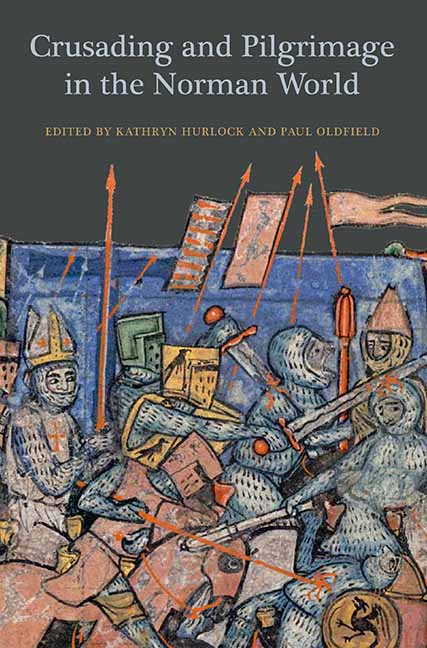7 - The Pilgrimage and Crusading Activities of the Anglo-Norman Earls of Chester
Published online by Cambridge University Press: 25 May 2021
Summary
This chapter explores the devotional and political dynamics behind the promotion of shrines, pilgrimage centres and crusading by the Norman and Anglo-Norman earls of Chester. Following the Norman invasion and settlement of England the earldom of Chester was established as a powerful centre of lordship along the northern march with Wales. Owing to its vital strategic function and the loyalty to the Crown of its successive earls, the earldom of Chester enjoyed semi-independent status which invested authority in the earl, hence, the royal writ did not apply there, and the king possessed no property in the county of Cheshire. As leading lords and noblemen in both Normandy and England, earls such as Hugh d’Avranches (c. 1071–1101) and his son Richard (1101–20) were particularly active in promoting cult centres of former Anglo-Saxon saints, while later figures vigorously led and prosecuted military expeditions to the East. Moreover, the special status of the earls of Chester made their part in the crusading movement more crucial for recruitment and participation than perhaps noble leadership was elsewhere in England. Cheshire was the only county in England with no Templar property of any kind, and its Hospitaller holdings were scarce.
For the purposes of this study, the Norman and Anglo-Norman earls of Chester span the period from Hugh I, who was invested with the title around 1071, and the death of Ranulf III in 1232. The activities of John the Scot, the last of the earls before the honour passed to the Crown, are not covered, although he took the Cross in 1236 yet died before he could fulfil his vow. John would have taken part in the crusade of Richard of Cornwall and, had he fulfilled his vow, it is likely that the greatest impact on Cheshire would have been financial, as he was one of the richest crusade leaders as a result of his properties in England and Scotland. This chapter, however, necessarily considers the activities of both the earls and their leading vassals, such as the constables of Chester, as they illustrate a range of features synonymous with the bellicose, acquisitive and religious nature of the Normans and their adherents. One such individual was Hugh d’Avranches, hereditary vicomte of Avranches in western Normandy, holder of lands in the Hiémois, Avranches and Bessin regions of the duchy and established as earl of Chester around 1071.
- Type
- Chapter
- Information
- Crusading and Pilgrimage in the Norman World , pp. 125 - 138Publisher: Boydell & BrewerPrint publication year: 2015



